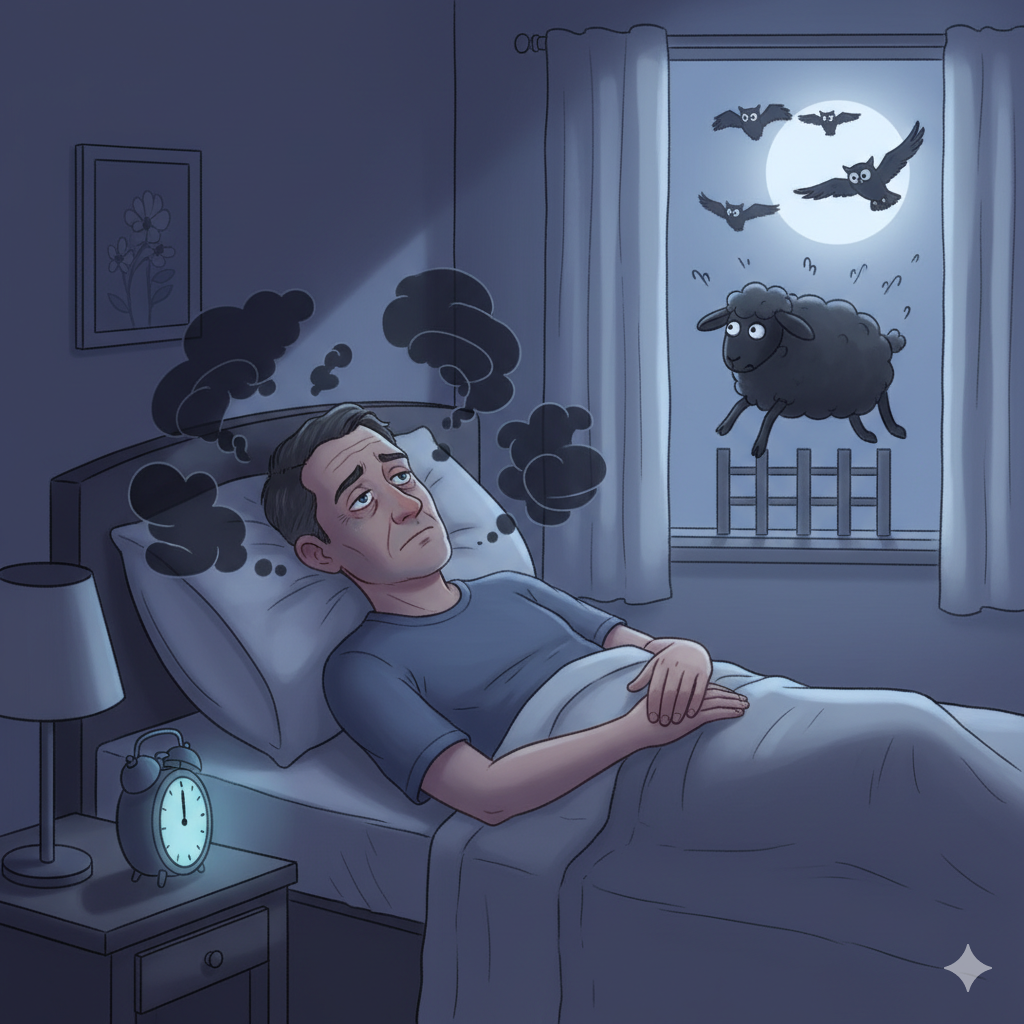Sleep disorders
- MấtNgủ
- NgủNgon
- rối loạn rất ngủ
- SứcKhỏeGiấcNgủ
- SuncareSG

What is sleep disorder?
Sleep disorders are conditions that alter the duration and quality of sleep. Sleep disorders can negatively affect your energy, mood, concentration, and overall health. In some cases, sleep disorders can be a symptom of another medical or mental health condition.
There are many different types of sleep disorders. The most common are insomnia, sleep apnea, restless legs syndrome, and narcolepsy.
- Insomnia is difficulty falling asleep or waking up frequently during the night. You have chronic insomnia if you have trouble sleeping at least three nights a week for three months or more.
- Sleep apnea is a serious sleep disorder that causes breathing to be repeatedly interrupted during sleep.
- Restless legs syndrome, also known as Willis-Ekbom disease, is a type of sleep movement disorder that causes an unpleasant, urge to move your legs while trying to sleep.
- Narcolepsy is a condition in which you suddenly feel extremely sleepy during the day and fall asleep without realizing it.
 What are the symptoms of sleep disorders?
What are the symptoms of sleep disorders?
Depending on the type of sleep disorder, severity and cause, the patient will have different symptoms. But in general, common symptoms of sleep disorders include:
- Difficulty sleeping or frequent waking
- Tired and need to take a nap during the day
- Abnormal breathing
- The feeling of wanting to get up and walk around while trying to fall asleep
- Movement or other unusual behavior while sleeping
- Unwanted changes in sleep-wake cycle
- Irritability or anxiety, difficulty controlling emotions
- Working or studying ineffectively
- Lack of concentration, slow reaction time, memory loss
- Depression
- Weight gain
What causes sleep disorders?
There are many causes of sleep disorders. These can be divided into the following groups of factors:
- Patients with underlying medical conditions such as allergies, respiratory diseases (such as asthma), frequent urination and chronic pain, leading to difficulty falling asleep and frequent waking up in the middle of the night.
- Patients with stress, depression or anxiety disorders, leading to difficulty sleeping or nightmares, sleepwalking, sleep talking causing sleep interruption.
- Environmental factors: loud noise, beer and alcohol use.
- Working the night shift disrupts the biological clock.
- Genetic factors (narcolepsy).
- Medication: Some medications can affect sleep.
- Aging: About half of adults over 65 have one of these sleep disorders.
 How to prevent sleep disorders
How to prevent sleep disorders
To get good sleep and reduce the risk of sleep disorders, you can limit or avoid the following foods or drinks:
- Caffeinated beverages like soda and coffee in the late afternoon or evening.
- Diet pills.
- Decongestants.
- Antidepressants.
- Cigarette.
- Alcoholic beverages.
How to treat sleep disorders?
Treatment for sleep disorders depends on the patient's condition and the cause. But in general, doctors often combine medication and lifestyle changes.
Drug treatment
Your doctor may prescribe some of the following medications to help treat insomnia:
- Sleeping pills
- Melatonin supplements
- Allergy or cold medicine
- Medicines to treat underlying diseases
Your doctor may also recommend a breathing device or surgery to treat sleep apnea. If you grind your teeth while you sleep, you may need a mouth guard.
If necessary, seek help from a psychologist. Your doctor will advise you on how to recognize, confront, and overcome stressful thoughts that affect the quality of your sleep.
Change your lifestyle
To treat insomnia, lifestyle adjustments are essential. You should:
- Create an optimal sleep environment: make sure your bedroom is comfortable, quiet, dark, and at the right temperature.
- Follow a healthy diet: eat more vegetables and fish, reduce sugar intake, limit smoking and drinking alcohol, beer, and caffeinated drinks, drink less water, and eat less sugar and starch before going to bed.
- Think positively: don't go to bed with heavy thoughts like "Will I sleep well today? If not, what will I do tomorrow?"
- Put everything aside before going to bed: make a list of unfinished tasks to allow yourself to temporarily forget, reduce the burden and stress on the brain.
- Go to bed and wake up at the same time every day: try to do it regularly, even on weekends.
- Exercise regularly: If you have insomnia, maintain a daily exercise routine, but avoid exercising within 4 hours of bedtime.
-------------------------------------------------------------------------------------------
👉 Contact SunCare for medical support and advice as well as professional private jet transportation services 🇸🇬 SUNCARE PTE. LTD SINGAPORE
🏠 Add: 10 Anson Road, #10-11 International Plaza, Singapore 079903
☎️ Hotline: +65 96727717 (Dr. Lien Minh - Director) Zalo, Viber
📨 Email: suncarehealth@gmail.com





